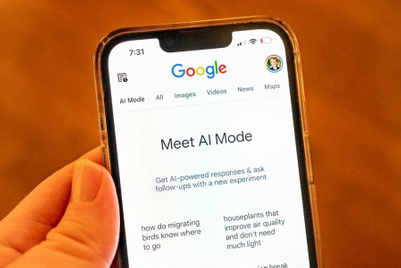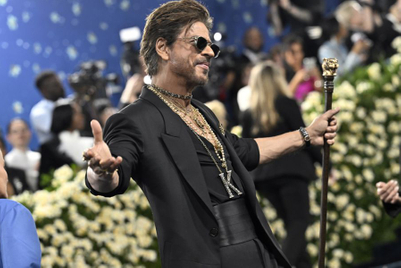
When Apple recently agreed to a $95 million settlement over allegations of unauthorised Siri recordings, it sent ripples through the advertising and tech worlds. The class action lawsuit accused Apple of routinely recording private conversations after Siri was unintentionally activated and sharing these with third parties such as advertisers. While Apple denies the claims, the settlement shines a glaring light on how much we know about data privacy and what it means for marketers relying on increasingly intelligent tech tools.
Apple, which has built its reputation on privacy, found itself in an uncomfortable position. For years, the Cupertino-based giant has been vocal about its commitment to protecting user data.
“Apple has never used Siri data to build marketing profiles, never made it available for advertising, and never sold it to anyone for any purpose,” the company clarified in a statement following the settlement.
The tech company maintains that Siri interactions are not stored unless users explicitly opt in, and even then, the data is solely used to improve the assistant’s functionality. Yet, the lawsuit raises questions about whether actions have kept pace with promises, nudging Apple to prove its transparency.
The advertising industry’s double-edged sword
For advertisers, the case presents both an opportunity and a warning. Voice assistants like Siri, which activate upon hearing “hot words” such as “Hey Siri,” offer potential for a new level of insights.
Imagine a world where marketers could analyse casual conversations to predict purchasing intent. A simple mention of “new running shoes” might lead to tailored ads within minutes. It’s the ultimate in targeted advertising but raises significant ethical concerns.
The case also underscores why consumer trust is non-negotiable. If users suspect their private conversations are fodder for ad targeting, it could spark backlash against brands.
People value their privacy, and missteps can easily feel like overreach. This balancing act is especially tricky in a world where laws like the EU’s GDPR and California’s CCPA are tightening the screws on data practices.
A renaissance in understanding data ethics
The lawsuit also points to a broader transformation in how society views data collection. All the efficiencies we have seen in advertising and targeting in the last 10 years are connected to an infinitely complex labyrinth of data, the ethicality of which is in a complete grey area. It feels like we are in that Renaissance era of understanding how technologies use our data.
This era is marked by growing scrutiny over technologies that collect real-time data, like Siri. The ethical challenges go far beyond advertising.
Active listening raises concerns about national security, corporate confidentiality, and personal privacy. As advertisers navigate this complex terrain, they must ask themselves a fundamental question: How far is too far?
The imperfection of AI
While active listening technology sounds revolutionary, its implementation is far from perfect. Voice assistants rely on artificial intelligence to interpret conversations, but AI often lacks context.
A voice assistant might mishear a command or fail to understand a user’s tone, leading to irrelevant or intrusive ads. This not only undermines the user experience but also amplifies the “creepiness factor.” As a result, even the idea of leveraging private conversations for ads can alienate users.
Apple’s response to the lawsuit—asserting that it does not use Siri data for advertising—could serve as a benchmark for other companies. It demonstrates the importance of transparency and clear communication in maintaining user trust.
The future of advertising in a privacy-first world
Navigating global privacy laws is another challenge for advertisers. The GDPR mandates strict controls on data collection and user consent, while the CCPA requires companies to disclose how they use data and provide opt-out mechanisms. Advertisers must ensure compliance without compromising their ability to deliver effective campaigns.
Apple’s emphasis on minimal data use aligns with these regulatory expectations. “Certain features require real-time input from Apple servers, and it is only in such cases that Siri uses as little data as possible to deliver an accurate result,” the company stated. By focusing on compliance and transparency, Apple has set a precedent for balancing innovation with respect for user privacy.
For marketers, the Siri lawsuit is a cautionary tale. The industry’s reliance on consumer data has fuelled a decade of advertising innovations, but it’s also created a labyrinth of ethical dilemmas. As active listening and AI technologies evolve, advertisers must tread carefully to avoid crossing privacy boundaries.
The transformation in public understanding of data ethics could take another five to ten years, but its impact will be profound. Companies that invest in transparent practices and respect user autonomy will be better positioned to navigate this shifting landscape.
The $95 million Apple settlement serves as a reminder that while technology can unlock new opportunities, it must be wielded responsibly. Brands that overreach risk losing not just consumer trust but their competitive edge in an increasingly privacy-conscious world.
Ultimately, the Siri settlement isn’t just about Apple. It’s a wake-up call for the entire advertising industry to rethink its approach to data collection and use. Users want to feel respected, not just like data points on a spreadsheet.




.jpg&h=334&w=500&q=100&v=20250320&c=1)
.jpg&h=334&w=500&q=100&v=20250320&c=1)
.jpg&h=334&w=500&q=100&v=20250320&c=1)

.jpg&h=334&w=500&q=100&v=20250320&c=1)

.jpg&h=334&w=500&q=100&v=20250320&c=1)
.jpg&h=334&w=500&q=100&v=20250320&c=1)
.jpg&h=334&w=500&q=100&v=20250320&c=1)


.jpg&h=268&w=401&q=100&v=20250320&c=1)


.jpg&h=268&w=401&q=100&v=20250320&c=1)


